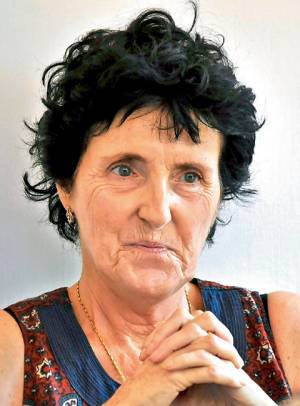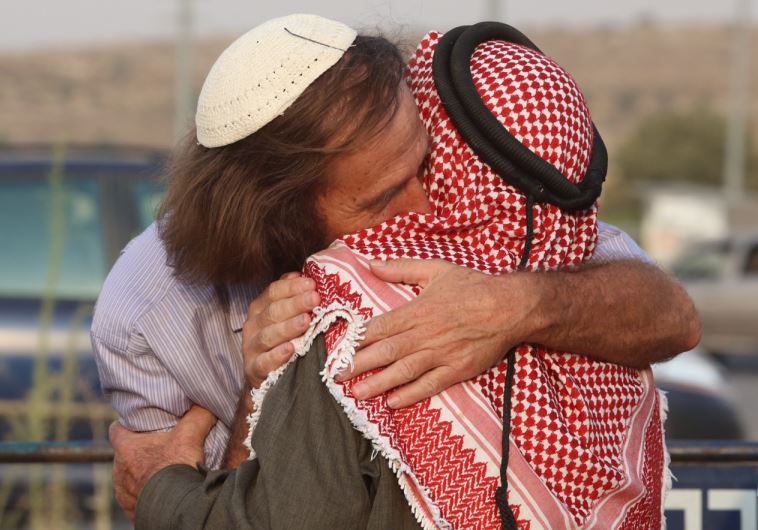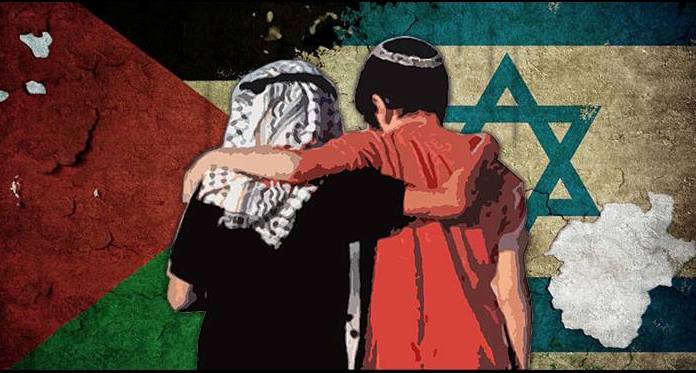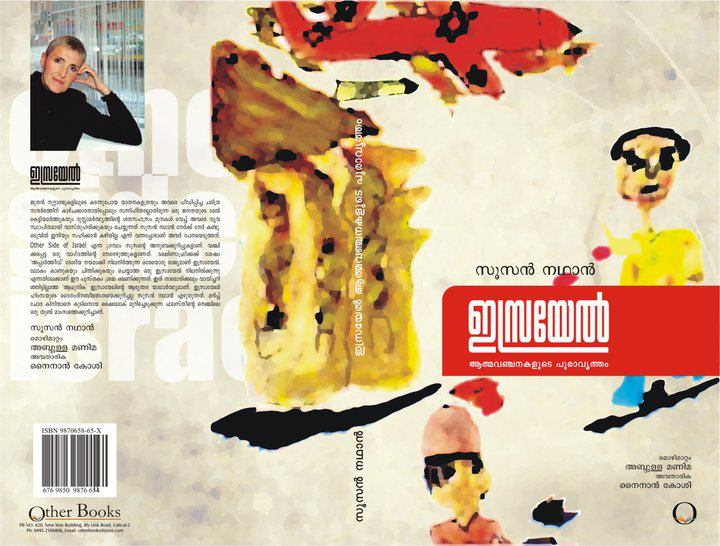‘Co-existence is the Only Way Ahead for Jews & Arabs’

SUSAN NATHAN is a British born Israeli writer, counsellor and peace activist. Her book The Other Side of Israel: My Journey Across the Jewish -Arab Divide analytically describes her experiences of living in an Arab village inside Israel. She brings into notice the discrimination within Israeli society and advocates peace and co-existence between Jews and Arabs. Her book was translated into Malayalam, by Dr. Abdulla Manima and published by Other Books. MUHAMMED NOUSHAD interviewed her in Calicut during the launch of the title, in 2010.
In your book The Other Side of Israel, you have argued that the co-existence of Arabs and Jews in one state is the solution for the West Asian crisis. You have practically lived in Tamra, a predominant Arab locality in Israel, despite your Jewish identity. However, it is a hard-hitting fact that Israel is an apartheid regime. How the idea of co-existence could be accomplished, in large scale?
I think co-existence is going to come about naturally. What the Jews have done in Israel is to recreate the ghettos of Eastern Europe. During the Second World War, we were ghettoized, and Jews have a long history of living in ghettos under different circumstances. Israel has recreated these ghettoes again. It’s part of an exclusivist mentality which take them off the reality of a nation. And it is extremely unhealthy. What my life has done is to reflect back to Israeli society that everything is wrong with it. And not only Israeli society, all other societies. I think my entire life is very much showing that a divided society simply wouldn’t survive. If you are coming with peace and genuine concern, for the people, and I think this will work in Israel, because one day the fighting will have to stop and the size of Israel is so tiny that people will realize that there is no else way to live, that we have to open up our country, to Arabs, to Palestinians and to live as equal citizens. It is something that’s going to take place, with a great fight. And then, eventually, I think it will fall into place. I don’t think it is immediate, it may be in the next ten years, and may not be in my life time. It may take another generation.
When you say fight, do you mean an armed fight also?
Yea, it will be a weapon struggle, a political struggle, by dissidents and community leaders, and by Jews who think like me. There are many Jews who do not approve of what Israel does.
It’s often heard that there are strong voices of dissidence inside Israel, though it largely goes unnoticed. What are the main dissident activities in Israel?
Many of them are heavily involved with going to Palestine to fight against the development of the wall. For example, they support the Palestinians, they put their lives on the line time and time again, by standing up to the army and it’s very violent; people have been killed and wounded for life. They take cases to international criminal court and to the supreme court in Israel. There are outspoken people, some have written dissident articles, widely circulated and published. There are businesses to empower Palestinians, there are hundred and one things going on in Israel, it is one of the most, you know it’s really a political hotplate of activism.
But almost always, the Israeli establishment makes sure that the voice of dissidence inside the country does not get noticed outside. How do they manage the dissidents?
What Israel does is they just take no notice of them. They pretend that we don’t exist. For example, they don’t give me harassment at the airport. Although they quiet know who I am. I am allowed to pass quite clearly. Because to take me into prison or to harass me means that they know I will write about it. And foreign diplomats would take up my case and they won’t turn me into a martyr. So it’s better not to give me the glory, it’s better to pretend that I am not there. That is what they do.
When you publicly say that the Hamas and Hizbolla are not terrorist organizations, don’t you feel insecure at least inside Israel?
I must tell you that two years ago Haaretz took a poll and 64 percent Israelis wanted a direct negotiation with Hizbollah. I would say, Israeli citizens on the whole, educated Israeli citizens, have accepted that Hamas and Hizbolla are part of the social scene, they are part of the fabric of our life in the Middle East. And the direct negotiation with them, and direct contact with them, is the way we have to go.
Apart from the people, do you think the government will ever acknowledge them?
I think they will. Eventually. Because they will have to. They will just have to. You have to remember that the African National Congress was a terrorist organization, once. And don’t forget that Israel was founded by Jewish terrorist organizations. When the PLO first came into being, this was regarded as a terrorist organization. And I have Israeli friends who were sent to prison for making contacts with the PLO. They were amongst the first people in the country to acknowledge the PLO. And you know the same thing is with Hamas. It is only a question of time. When they will acknowledge Hamas.
In turn, Hamas, though not formally, accepts that the state of Israel exists.
Yes, but Israel even doesn’t choose to hear that. That it informally accepts the right of the country to exist. No country with such strong and confident military capability of Israel would have to worry about whether another group gives them a right to exist or not. We exist, and that is a fact.
How do you estimate the violent acts, being used by Palestinian groups, especially against civilians?
First of all, I don’t approve of acts of violence against any civilians whether it’s from Israeli army or from Hamas or Hizbollah or whoever. It is a war crime and it is to be brought to international law as a war crime. But on the other hand, it is also a war crime, to shut people behind walls, to make them live their lives miserably behind checkpoints, to put them under siege and to deprive them everything you need and to lock them in concentration camps where you don’t open the borders and even laugh upon the Palestinians who get electrocuted on the electric lines on the border around Gaza. So we are equally guilty of war crimes, and I think the reaction we get from Hamas and Hizbollah is the ration we have to expect.
In what way such reactions would help solving the crisis?
It doesn’t help to solve the crisis. No amount of Khassam rockets or incursions by the Israeli military would help to solve our position. The only thing that would help to solve our position is taking down to the negotiating table. And we have to negotiate even though the violence is continuing. We cannot say we will not negotiate until you stop the rocket fire. Even when Gaza is on fire, we have to go to the negotiating table.
It is sad that we are caught in a completely nonsensical situation of tit-for-tat. I think it will go on and more people will be killed, until we produce leaders who have sense of vision and courage. You have to go to the negotiation table knowing things on how this could be ended. But you cannot go to the negotiating table setting ridiculous pre-conditions, and in this I very much blame America and the EU who should know better and who are afraid to employ their power and common sense to get Israel on. And one day we will pay for this. I mean, we, as a country, will pay for this.
In one of your talks you mentioned the possibility of forming a Middle-Eastern Union. What exactly do you mean?
I think that a time will come when Israel join into a Middle-Eastern Union with our Arab neighbors and there will be peace and security with our neighbors. There will be open borders like we have in Europe; it is a key to a healthy state and for our future. I really believe with the education of Jews, massive advancement in science and technology, and with the wealth from the oil, the combination of the Jews and the Arabs could make the Middle-East the most exciting and dynamic part of the world to be. And at the moment what we are doing is throwing Israel into the ocean and destroying any sort of future we will have. It will take years and years to overcome these terrible wars in South Lebanon and this terrible war in Gaza. Because of the destruction and the hate we created, we create more Arabs and more Palestinians who hate us.
But it sounds a very unrealistic dream.
No, it is not unrealistic at all. Nobody would have thought ten years ago that Europe, which has been in war with each other, would form a union. You look what happened in the Second World War, countries were destroying each other. There were nuclear bombs on Hiroshima and Nagasaki; who would have ever thought that we would have European Union? And it is amazing now to travel in Europe, to go from one country to another, you don’t even have to show the passport. I mean, the freedom is unbelievable. And Israel will come to accept that there is nowhere else to go. People are very tired now, quality of life is very poor, my standard of living in Israel is far lower than yours here, that might shock you to know.
India has massive trade agreements and arms dealings with Israel. And at the same time, India has announced huge humanitarian aid to Palestinians in Gaza.
Quite clearly this is a double standard. It’s the lack of moral courage, and political cowardice on the part of the Indian government. Indian government should make it clear to Israel that this kind of behaviour in Gaza is not acceptable. We cannot accept this and we cannot send arms to a government that behaves like this. And thus Israel must be forced to go to the negotiation table. What India should be ideally doing now is the trades and arms embargo. If India can get to know what is happening to the Palestinians in Gaza, they would withdraw from the arms deals with Israel. It is unethical to continue relations with Israel.
There was a reported statement by the Iranian President Ahmedi Najad, about wiping out Israel from the world map. But some media analysts have pointed out that he was being misquoted. However, there is a visible hostility between Iran and Israel; for instance, Israel is very agitated against Iran’s nuclear project.
I don’t think that Israel has to be afraid of Iran. I am very well-informed about this argument from Prof. John Con who says that when Ahmadi Najad speaks, the western press do not really understand the Persian language correctly, and so misquote him. And I think it was a misquotation. Or rather a manipulation of what he said. But it is true that he hates Israel and Zionism. But, I don’t think a true statesman comes out with such rubbish. I know from diplomat sources and from people who have worked in Iran that Iran has its own set of problems. Any regime that arrests its own citizens for obscure reasons, and keeps them in prisons without trials and execute them has no right to correct others. They should look after their own sh-t. It would be very dangerous for Iran to attack Israel. It won’t be helpful. Israel is much more strong militarily. Instead, why shouldn’t we have trade agreements? Why shouldn’t we exchange culture and scholarship? Also, there is a small but thriving Jewish community in Teheran, and they don’t want to immigrate to Israel. They are quite happy, they even have a member of parliament, who is a Jew.
When the media, particularly western media, reports the Israeli-Palestine conflict, there is a complete double standard.
Yes. But at the same time, there are big changes coming in Israeli society. Because there is an increase in the number of Jews learning Arabic now. And many Jews are watching Al-Jazeera for the real news, because of the censorships in our news and its one-sided view. I feel that people, some intelligent people, are starting to wake up to the reality, to another type of Israel.
The Arab masses very often respond to Israeli attacks with a call to boycott Israeli products. How far this is effective?
It is very effective. Israel is very nervous about boycotts, whenever anyone is talking about particularly boycotting Israel, it gets nervous. It was the same when there was serious academic boycott. I think it works.
So the market can also be a place where you can fight against Israeli apartheid?
Yes, very effectively. In South Africa, one weapon against its apartheid was economic sanctions and boycott. And the same will happen to Israel.
[This was originally published by Madhyamam weekly in 2010. All photographs are from the Internet]


